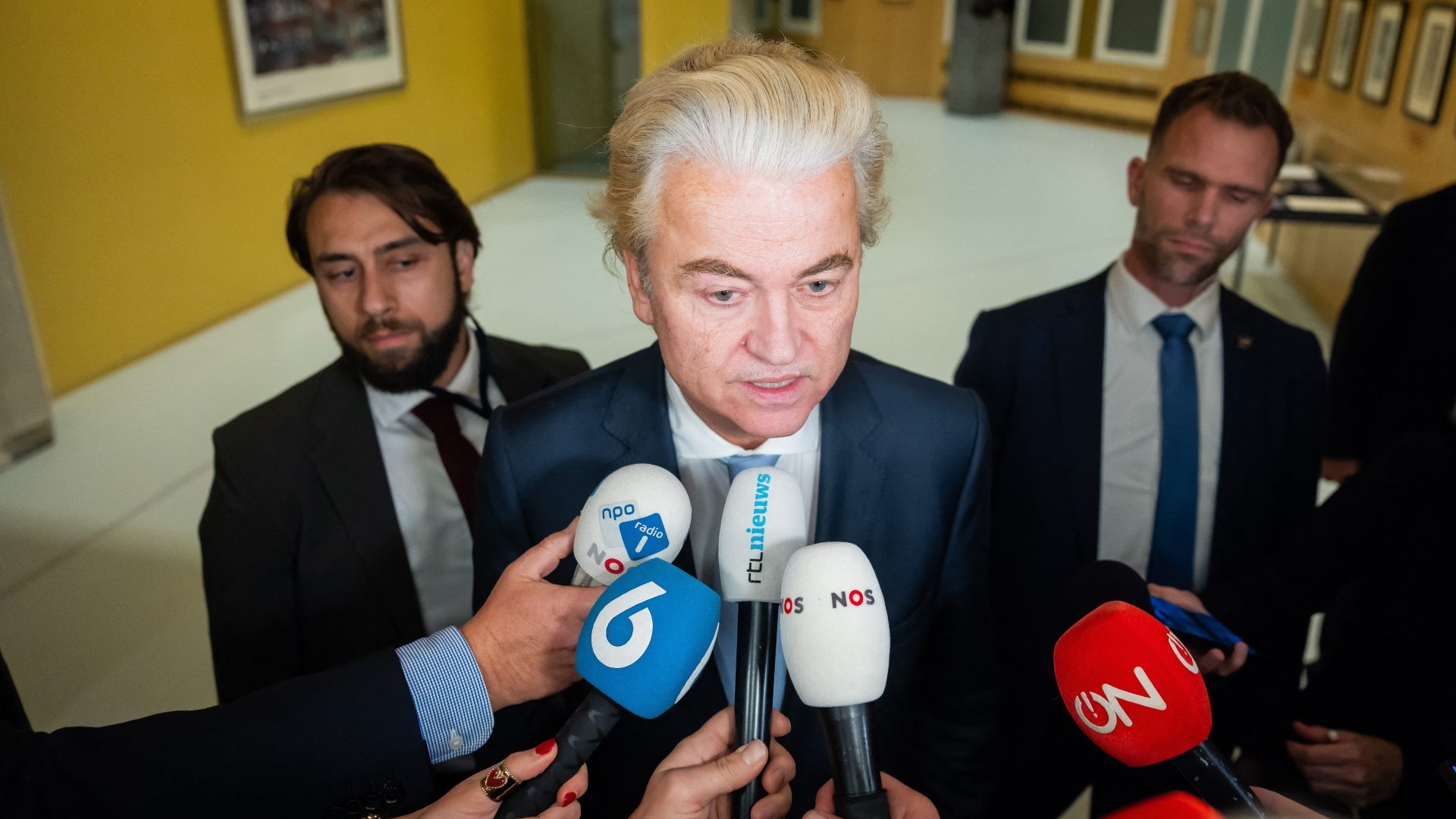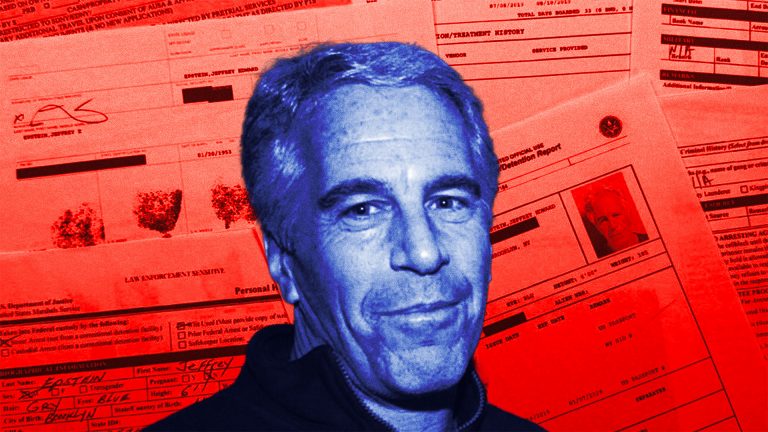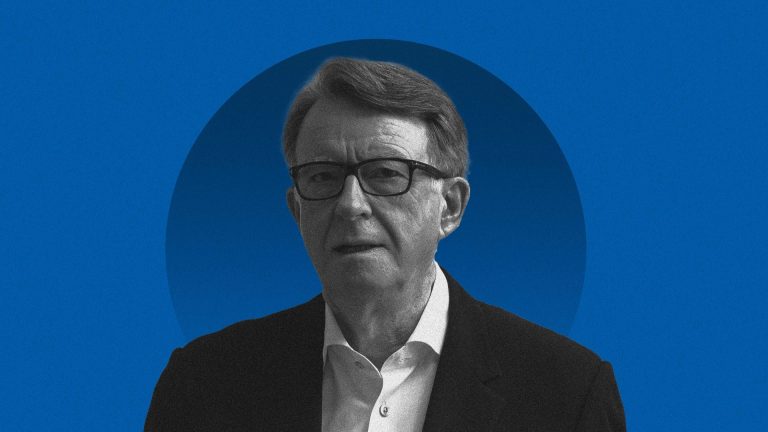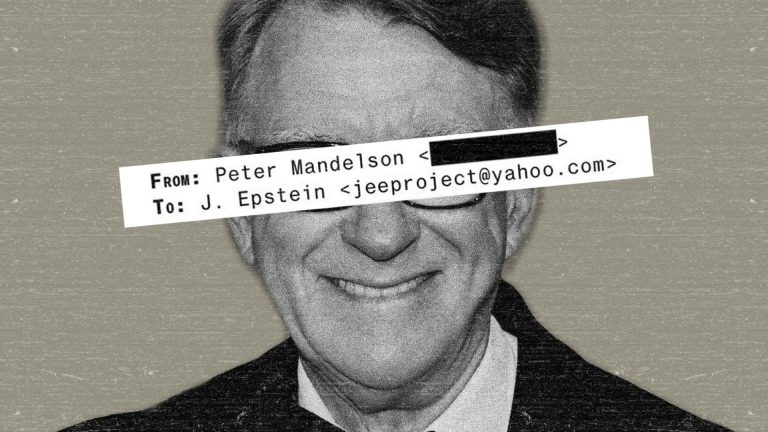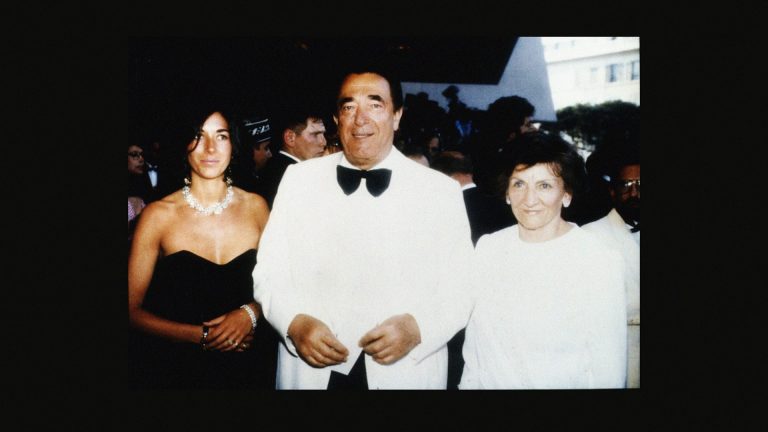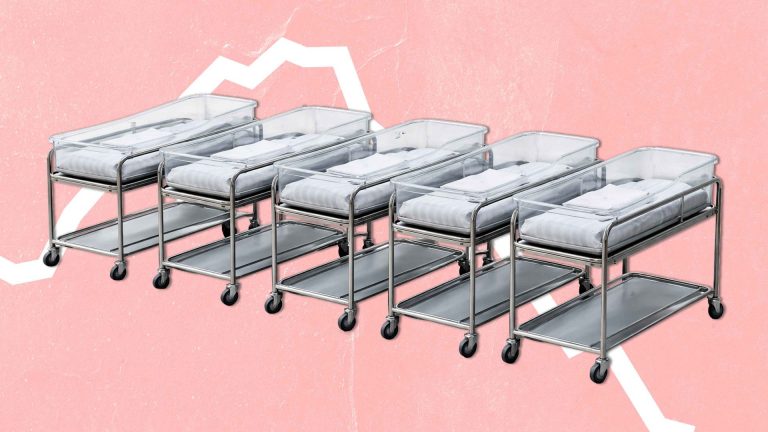After a murky election result in the Netherlands, one thing is clear: The far right, anti-Muslim wannabe prime minister, Geert Wilders, suffered a personal rebuke by voters. He has now twice sabotaged a government in which he had a stake, and the country has clearly had enough – for now.
But even though Wilders was one of the biggest losers, his PVV party still ended up in joint first place and the far right bloc overall more than held its own. What at one point on election night looked like a jubilant centrist restoration, had turned into a confused muddle once all the results were in.
In his familiar combative style, Wilders still insisted that he should be asked first to try to form a government. But that doubtful pleasure is likely to be eventually bestowed on Rob Jetten, leader of one of the biggest winners in the elections, the progressive-liberal D66 party. If he succeeds, he’d become both the youngest and the first openly gay prime minister of the Netherlands.
D66, now the joint biggest party with the PVV, has one thing going for it in the upcoming coalition talks that typically drag on for months, if not longer. Jetten has only ruled out ruling with the PVV, where other parties have sometimes banned several partners, a priori.
Also, nobody seems to know exactly what D66 stands for, other than being centrist and liberal. The progressive part is often more to be found in the party’s DNA than its current platform. As the name suggests, it was founded amid the social and political upheavals of the 1960s, by a journalist, as it happens.
The party is progressive on climate issues but a firm believer in market forces when tough decisions have to be made. It will not meaningfully reform the expensive private health insurance system and has floated addressing the perennial housing crisis by building ten new cities. How the latter is to be achieved in the face of planning permissions, environmental licenses and severe infrastructure limitations, is as yet unclear.
The resurrected centre right Christian Democrats of the CDA will be natural coalition partners for Jetten. They are the other big election winners, and the two parties together could form a large centrist anchor. But then things are bound to become a lot more difficult, maybe even impossible.
Suggested Reading
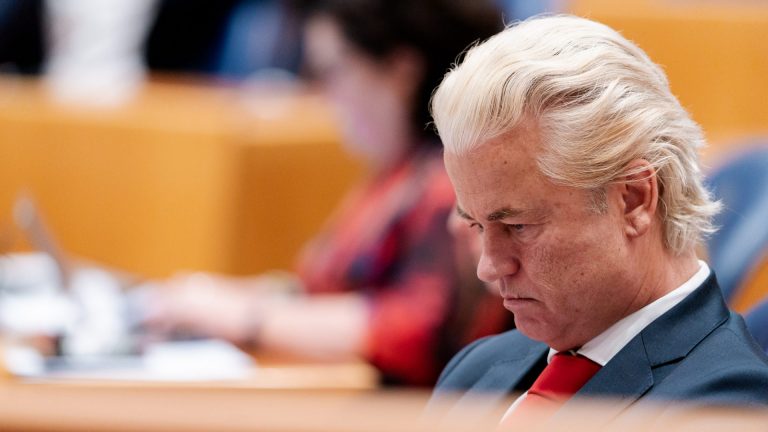
Ganging up on Geert Wilders
The conservative liberal VVD of former prime minister and current NATO chief Marc Rutte has drifted increasingly to the right. It was the only party in the outgoing coalition that didn’t suffer big losses, being down just two seats. One of its coalition partners, the right-of-centre NSC, was completely wiped out. It had only entered parliament for the first time two years ago.
A broad centrist coalition including both the VVD and the left-of-centre GreenLeft-Labour party appears one of the few viable options, but will face possibly insurmountable obstacles. Chief among these is the VVD’s stated opposition to being in government with GreenLeft-Labour. It has also ruled out governing with Wilders’ PVV again. Something will have to give.
GreenLeft-Labour disappointed in the elections and ended with fewer seats than last time, causing its leader, former European Commission vice-president Frans Timmermans, to resign. This could also complicate coalition talks in the short run. Elsewhere, too, the left had a bad night.
While the PVV lost, two smaller far-right parties made big gains, giving them overall even one more seat than two years ago. The total far right vote is almost as large as the combined D66 and CDA centrist vote.
Voters have possibly signalled some willingness to return to the centre ground of politics. What they have not done is deliver a result that will guarantee a stable and effective government for the next four years.

